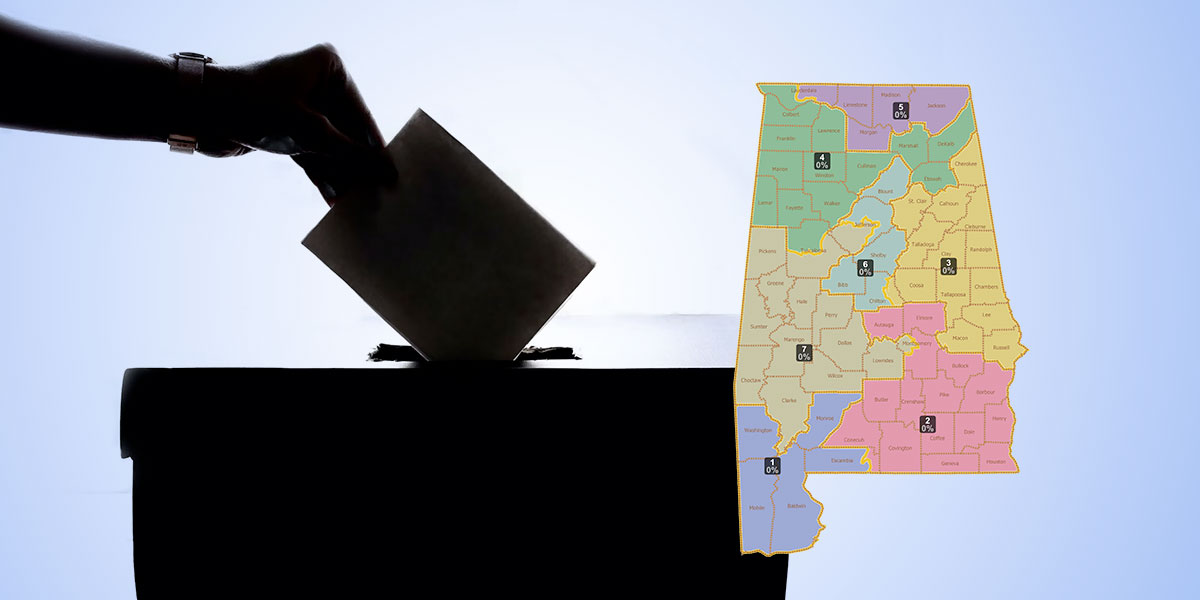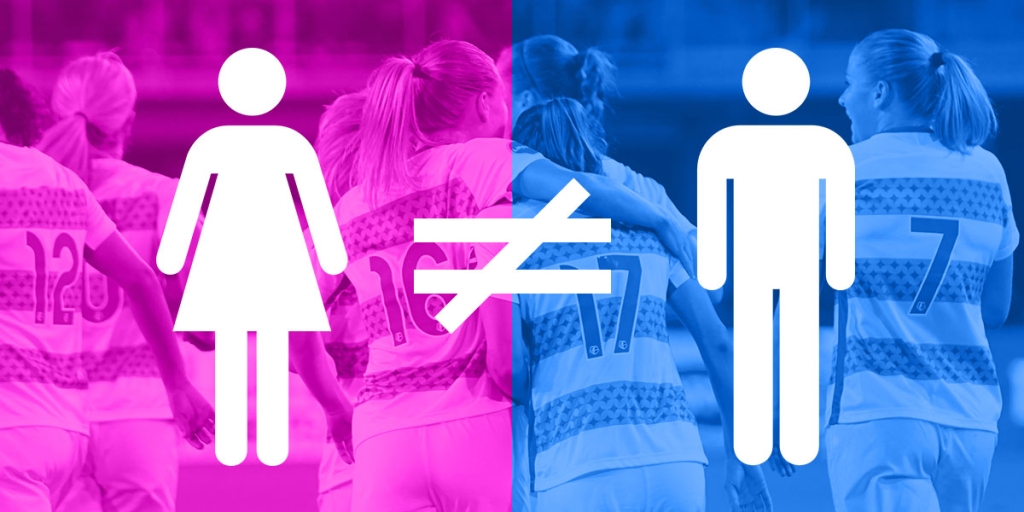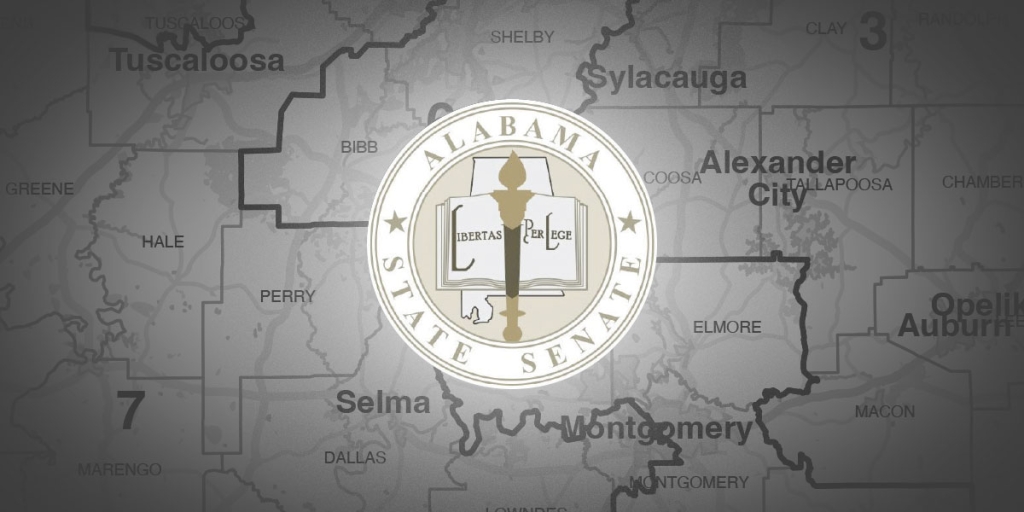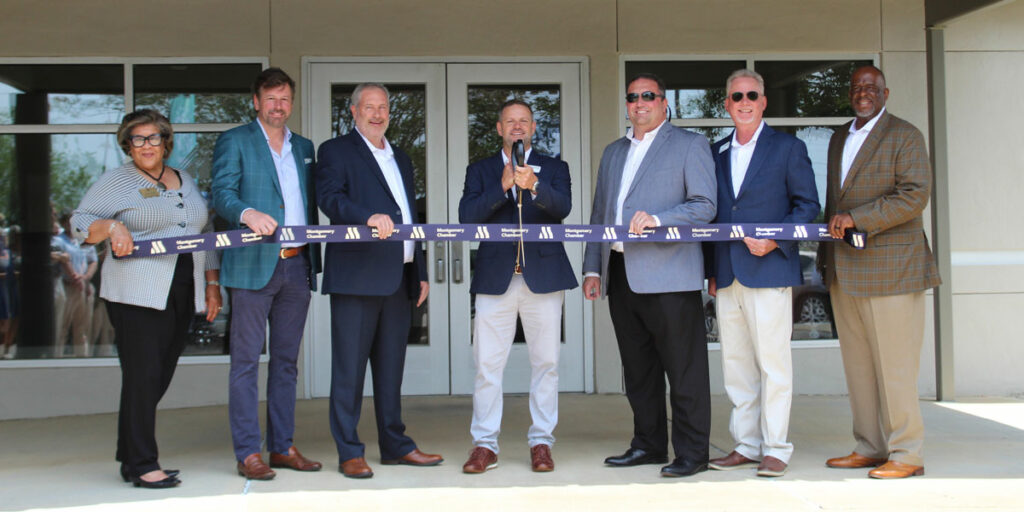The Supreme Court ruled in favor today of Black voters in an Alabama congressional redistricting case. The ruling ordered the creation of a second district with a large Black population.
Chief Justice John Roberts joined Justices Brett Kavanaugh, Sonia Sotomayor, Elena Kagan and Ketanji Brown Jackson in the majority; Justices Clarence Thomas, Samuel Alito, Neil Gorsuch and Amy Coney Barrett dissented.
Today’s decision affirms a lower-court ruling that found a likely violation of the Voting Rights Act in an Alabama congressional map with one majority Black seat out of seven congressional districts; Blacks make up 27% of the state’s voting age population.
“I am disappointed in today’s Supreme Court opinion but it remains the commitment of the Secretary of State’s Office to comply with all applicable election laws,” Alabama Secretary of State Wes Allen said.
In January, a three-judge district court panel — two of whom were appointees of former President Donald Trump — found that Alabama’s map was substantially likely to violate Section 2 of the Voting Rights Act. They found that: (1) the Black voting age population was sufficiently numerous and geographically compact to constitute a majority in a second reasonably sized voting district; (2) Black Alabamians vote in a politically cohesive way; and (3) white voters vote sufficiently as a bloc to defeat Black voters’ preferred candidates.
Alabama appealed to the U.S. Supreme Court.
The Southern Poverty Law Center (SPLC), the League of Women Voters of Alabama (LWVAL), the League of Women Voters of the United States (LWVUS), Schulte Roth & Zabel LLP (SRZ), and Stand-Up Mobile submitted an amicus brief outlining how Black Alabamians in the Black Belt and in Mobile constitute a community of interest and have been systematically deprived of their right to elect candidates of their choice to represent their interests in Congress.
“Today the Supreme Court affirmed the rights of Black voters in Alabama to elect the leaders of their choice,” said Kathy Jones, president of the League of Women Voters of Alabama, in a statement. “This ruling supports the decision of the three-judge panel that these maps diluted voting power based on race. It is a powerful declaration that Black voices in Alabama will no longer be ignored. We are pleased that we are one step closer to finally achieving equal representation in our state.”
The Alabama GOP said it was disappointed in the decision.
“The Alabama Republican Party is disappointed in the ruling by the United States Supreme Court,” party Chair John Wahl said in a statement. “The U.S. Constitution is clear that drawing district lines – as well as redistricting – are the responsibility of state legislatures.
“Regardless of our disagreement with the Court’s decision, we are confident the Alabama Legislature will redraw district lines that ensure the people of Alabama are represented by members who share their beliefs, while following the requirements of applicable law. The Alabama Republican Party remains committed to competing in every district, and will work hard to win all seven congressional seats with candidates that reflect their communities and the values of the state of Alabama.”
The SPLC said it will continue to challenge “barriers to voting.”
“The Supreme Court’s decision recognizes that the right of all Americans to equal representation still stands, but the fight does not end here,” said Bradley Heard, voting rights deputy legal director for the SPLC. “We will continue to challenge any barriers to voting wherever we see them, and we will advocate for the full restoration of all protections under the Voting Rights Act.”













